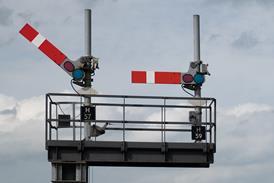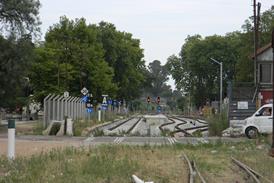JEAN-PIERRE DUPORT, President of Réseau Ferré de France, warned delegates to a colloquium on freight infrastructure held at the headquarters of the International Union of Railways in Paris on February 10 that ’icebergs’ threatened the future of Europe’s rail freight business.
Judging by the reaction of some delegates, the icebergs may be large and dangerous. Perhaps the one on which rail businesses are most likely to founder is their reluctance to recognise just how much the world economy has changed in recent years.
Alain Poinssot, a former head of the SNCF freight arm now with AXEP Consulting, flagged up the massive changes that have taken place in the global economy. Mass production of consumer goods is carried out at very low cost, typically in China, followed by worldwide distribution with goods ’personalised’ shortly before final delivery. In this world rail was often just one link in a complex logistics chain, and railways no longer determined what happened elsewhere along that chain.
Poinssot pointed out that the ’natural’ rail market for heavy freight was ’stagnant’, and that rail businesses urgently needed to seek growth in fresh markets such as small packages where there was rapid and sustained growth. Air and maritime traffic to and from Europe was ’exploding’, opening up opportunities for rail to serve the hinterland of ports and airports, he suggested.
Support for this view came from Jean-Claude Brunier, President & Director-General of Transports Auto Brunier and President of Groupement National des Transports Combinés. He weighed in with sharp criticism of current intermodal policy in France, warning that under present conditions intermodal services were loss-making and that service quality was simply ’not in the market’. ’SNCF must listen to the demands of the customer’, he insisted, adding that increases in rates of 4, 5 or 8% were ’unacceptable’ while road hauliers continued to improve productivity. ’Intermodal business is being killed off’, he said.
In a session on planning for an autoroute roulante Francis Babé of FNTR said that the road haulage industry would welcome any technology that would reduce road congestion, including a possible autoroute roulante or the mooted use of 60 tonne lorries (RG 2.05 p72) - a concept dismissed at the EuroRail conference (above) by B-Cargo General Manager Albert Counet as ’not a serious threat to rail freight’.
Vision of a freight revolution - p115CAPTION: Rail4chem has applied to run open-access freight in France; RFF expects the first independent operators to launch services later this year
Photo:Quintus Vosman




















